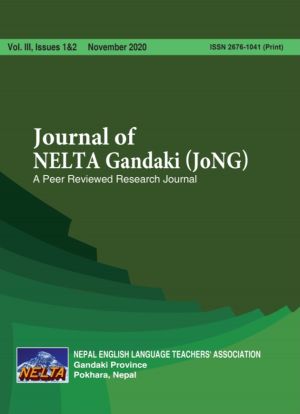Towards the Development of an Exhaustive Translation Theory
DOI:
https://doi.org/10.3126/jong.v3i1-2.33138Keywords:
translation, third literature, source language, target language, theoryAbstract
Systematic studies on translation began only after its introduction as a separate discipline in the 1970s. The movements of the mid-twentieth century established translation theories like functional, post-colonial, and systems and proved relevance for translation works. Thus, a brief survey of translation theories that were developed and applied in the Western countries is significant, rational, and timely. In this context, the present paper focuses on the delineations of the translation theories developed in the West. Further, these theories have been included within applied linguistics and English language teaching courses. Since the wholistic expansion of all of them is impossible and unnecessary in such a small-scale study, this article presents a brief survey of only contemporary theories, which have been developed from the 1970s to the present date. A survey of these theories exhibits that none of them is exhaustive enough within itself and therefore, a new theory that is intelligible, practical and relevant is yet to be developed The implication of this study in English language teaching is that the translation and the transtlation theories offer insights into the sensitivities of language and culture for language teachers while teaching.
Downloads
Downloads
Published
How to Cite
Issue
Section
License

This work is licensed under a Creative Commons Attribution-NonCommercial 4.0 International License (CC BY-NC). This license allows reusers to distribute, remix, adapt, and build upon the material in any medium or format for noncommercial purposes only, and only so long as attribution is given to the creator.




